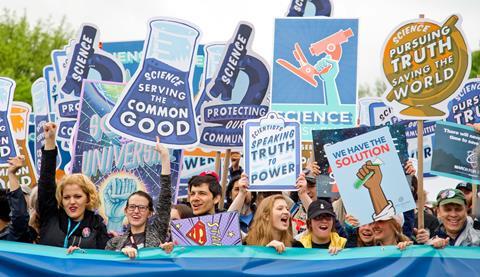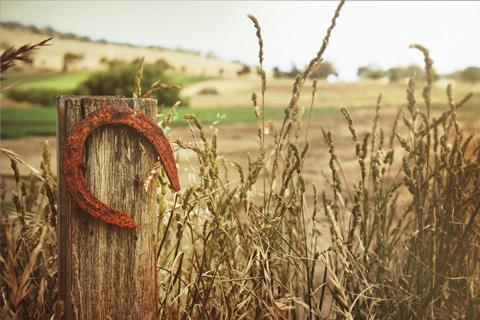Professor Alan Walker is a microbiologist at the Rowett Institute at the University of Aberdeen. His research focuses on mechanistic understanding of the interactions between host diet and the intestinal microbiota of humans and animals. Here he shares some advice as part of a wider conversation with author Yang Yue.
How do you network with people and how do you reach out to find collaborators?
If you’ve read a paper by someone who did some nice work that you think would be complementary to yours, you could email them and ask for a chat. Some may be too busy, but being proactive is usually better than waiting for people to come to you. Quite often you’ll find that people are at least willing to have a chat.
Likewise, if you’re at a conference and you’ve just seen a talk by someone who’s doing work you think would complement your own, then try not to be shy and go speak to them. It is probably no exaggeration to state that dinner (or the hotel bar) is where a lot of collaborations are formed. One of the reasons the pandemic-type online conferences never quite replicated being there in person is because you lost those networking opportunities outside of the talks. Ultimately, being proactive pays off. This can be difficult when you are a relatively early career researcher, but in my experience most academics are happy to chat if approached.

Sometimes you have to acknowledge that you don’t have the tools and expertise available in your own group to do that sort of follow up yourself. In which case, it may be worthwhile to consider collaboration. I think a key lesson for early career researchers is that you don’t need to do everything yourself. There’s no way you can immediately be as much of an expert as someone who has spent thirty or forty years studying something. My advice therefore is to consider working with people that have a set of skills that might push your research a little further forward.
One of the best things about being a scientist is that you get opportunities to work with, and learn from, brilliant people. Collaboration is one of my favourite aspects of the job, and throughout my entire career I have been fortunate to work with people from all sorts of scientific backgrounds. The best science is usually collaborative science. People working together will typically do much more than one person working on their own.
Science communication is so critical in many aspects, how do you work on your science communication with non-experts?
There are lots of good reasons for investing time and effort in public engagement. Academia is in many respects a “bubble”, and even the most well-cited papers will typically largely only reach a relatively small number of people, mostly other academics. If you want to reach a wider audience and be truly impactful, you do need to think beyond the lab and just writing papers. In addition, your work will likely be funded by either taxpayers or charities. People have a right to see what their money is being spent on. You would hope that, if the public and policymakers can see the benefits of this investment, they will be supportive of it in the future too.

Another major driver for me is that, if you don’t do public engagement, then the public dialogue is controlled by the sort of people that do want to do it. And, sadly, some of these are grifters trying to push a nefarious agenda, or selling something for personal profit. Unfortunately, there can be serious public health repercussions from letting them control the agenda. Furthermore, Brandolini’s law (aka the “Bullshit Asymmetry Principle: the amount of energy needed to refute bullshit is an order of magnitude bigger than to produce it.”) absolutely applies. Once the lie is out, it can be really hard work to try and change public opinion away from that misinformation.
On a more positive note, another important reason for doing public engagement is that it can be fun and quite rewarding! You find that some people are really interested, and ask lots of interesting questions about what you are doing. I’ve chatted about my science with audiences ranging from royalty, politicians, journalists and policymakers, through to members of the public of all ages down to preschool children. I enjoy it, as it forces you to think about your science in a different way, and teaches you how to communicate more effectively. You have to do it in an engaging way, and in a way that people can understand. That takes practice, but it is absolutely worthwhile. I do therefore encourage early career researchers, to try and take opportunities, for example, small-scale events like Pint of Science, to engage with non-scientists.
I think some scientists can be naturally a little introverted, so public engagement work can seem quite daunting. There have also been occasions when public engagement has gone very badly wrong, which may also put people off doing it. This can hopefully be avoided though with planning and proper consideration. It takes careful wording. Make sure that when you say something it can’t be misconstrued, especially when discussing things with relevance for public health. You should also do your best to be engaging and enthusiastic. If you sound bored, then your audience will likely be bored too. If you have an engaging style, you will bring the audience along with you. One of the lucky things about working on the gut microbiome is that people tend to engage with it quite well because we all have a microbiome, so they can see the personal relevance. It’s not like discussing abstract concepts like quantum physics or theoretical maths, you’re talking to someone about something that they can easily relate to. Everyone goes to the toilet, so most people are kind of interested!

Could you share some career advice with junior researchers or investigators?
It is an unfortunate truth that science can be a very challenging career. The training period is long, and usually followed by short-term contract jobs, which can be hugely disruptive and stressful. Unfortunately, only a relatively small proportion of PhD students end up being full professors, and I have seen very good people drop out of academia because they were ultimately unable to obtain permanent positions. If you do manage to persevere, the workloads can be heavy, and it is often not the sort of job that you can just leave behind as soon as the clock strikes 5pm.
The flip-side is that the job is never boring! It can also be highly rewarding. Providing you have good research ideas, and you can get them funded, then you are given a huge amount of freedom to pursue your curiosities. If you are lucky, you will get to travel to parts of the world you might never have seen otherwise (I think my work has so far taken me to 27 different countries). As I said before, you also get to collaborate with intelligent and interesting people, and you can make real differences in people’s lives. I love the fact I get to help early career researchers on their own journeys, and it has been a real pleasure to see PhD students and postdoctoral researchers from my lab becoming independent scientists or forming their own research groups. Amongst all of the challenges, there are lots of nice parts of the job.
As for career advice, I think one thing that PIs don’t always acknowledge is the role of luck. You can try and plot a chosen career path, but to some extent you are reliant on suitable opportunities coming along at opportune times. For example, you may have done very well in your PhD, and you might want to follow that up by doing a postdoc in a particular type of lab. However, if there are no jobs of that type available at that particular point in time then you obviously can’t follow that path. That’s luck. Likewise, you might get into a really good lab, but the project, although it might have been a nice idea, doesn’t work as planned because the central hypothesis turns out to be wrong. That is unfortunately how science sometimes works. As a result, you maybe don’t get a nice paper out of it, and it becomes trickier for you to then get your next postdoc. Unfortunately, you can work really hard, be an excellent scientist, and luck can still conspire against you.
Therefore, as an early career researcher, I think the main things you can do to help with luck are to work your hardest to get the most out of your time in a given job, try to diversify experiments where possible so you are not reliant on one particular hypothesis being correct, and be proactive when looking for subsequent opportunities.

How about advice for those applying for a new job?
You may need to apply for lots of jobs, and be willing to travel (if you are happy to do so). The reality is often that, if you don’t want to travel, then you may have to accept that you might need more luck. You need a job to appear in the place where you live. Unfortunately, this issue applies to many different industries, not just science.
You can also help yourself to some extent when you do apply for jobs. It is a good idea to do a lot of background work in advance. Learn about the lab, read their papers, know what they do. Read the job advert carefully, particularly the essential and desirable criteria, and make sure you do your best to clearly address those in your covering letter and CV. The most impressive candidates are usually the ones who write personalised cover letters. You can usually tell quite easily when it’s just a generic cut and paste. The cover letters that really stand out are the ones where someone’s made an effort, they have put the time in, and they can clearly evidence how they fit the essential and desirable criteria.
Even with all of the above steps, it is healthy to accept and acknowledge that luck can still play a part. Ultimately, even if you can prove that you meet the essential and desirable criteria then you are still at the mercy of whoever else has applied for the job. There have been occasions in my own career path when I have lost out to better qualified candidates, and there is nothing realistically I could do about that. Try to remain philosophical and don’t beat yourself up too much about these situations. All you can do is keep applying, keep trying and doing your best by writing good, tailored, cover letters and CVs.

The flip side is that you could also apply for a job not quite perfectly suited for you, but if no one else who applies is suited either, and you’re the best candidate, you’ll get that job. That’s also luck, but you’ve empowered yourself by applying in the first place, and writing a strong cover letter, increasing your chance of being lucky. All of this means a lot of work, but hopefully the hard work will eventually pay off.
I also think it is sensible for early career researchers to have Plans B, C and D in the event that academia doesn’t work out for them, or they decide it is no longer what they want to do. It is really unfortunate that there is sometimes a perception that if you leave academia you have somehow “failed”. That is simply not true, and lots of people find that they want to change career path. If you’re not enjoying it, it absolutely makes sense to do something else, because, fundamentally, it is just a job at the end of the day. There are lots of transferable skills that are learned during a PhD, which should stand you in good stead for a range of other different careers.
That being said, while it sometimes seems easy to talk a career in academia down, I think that one thing we sometimes forget from inside our little bubble is that other types of work are challenging too and, actually, many people don’t particularly love their job. As I mentioned previously, we are fortunate that there can be many great privileges and opportunities that come with a career in science. It can be hard work at times, but it is ultimately very rewarding. Everything in life is a trade-off, a balance, and you have to decide what’s best for you.








No comments yet